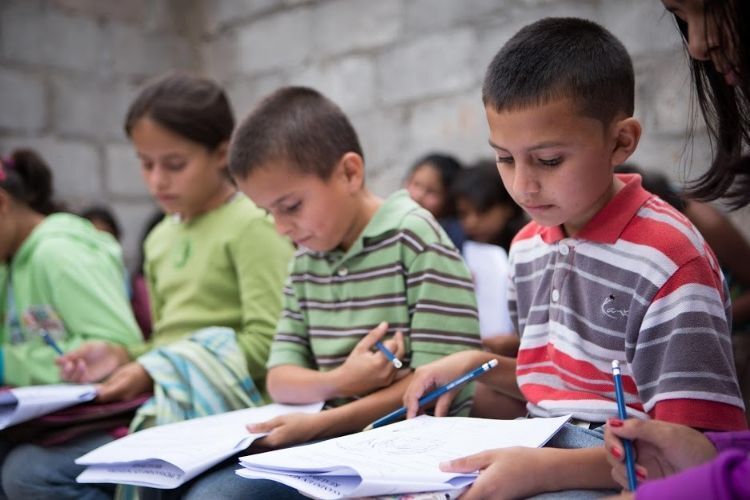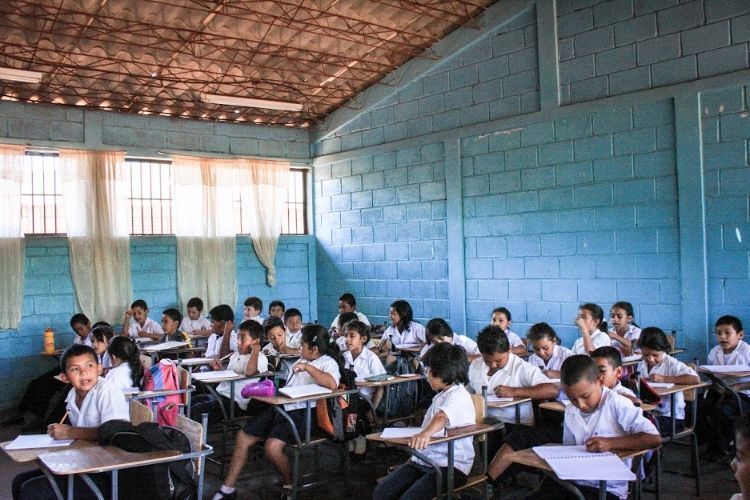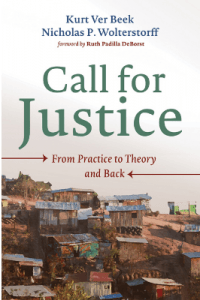Access to the Fishpond: Stories of Charity, Development, and Justice
There’s a common phrase in development – “Give people a fish and they will eat for a day; teach them to fish and they will eat for a lifetime.” But what happens if someone has built a giant fence around the fishpond, preventing people from entering? What happens if someone is stealing boats and fishing rods?
Too often, the barrier to sustainable development goes deeper than knowledge and training – it has to do with the environment where these fully-trained, fully-capable fishermen work. It has to do, in other words, with access to the pond.
At ASJ, we identify three different levels of helping the poor – charity, development, and justice.
Charity is “giving a fish”. There are times when charity is useful and important! In the immediate aftermath of a natural disaster, for example, people don’t need job training – they need a bed and a hot meal.
But for long-term transformation, many organizations try to go a step further, using development to build up people’s capacities and potential – “teaching them to fish.” Development can also be life-changing! Microcredit and business opportunities, for example, may help to lift a family out of poverty.
But development also has its limitations. In Honduras, many budding businesses are forced to close, not for lack of training, but because of extortion from violent gangs. Good training and promising opportunities are limited by systemic weaknesses that allow criminals to operate in impunity. Too often, then, the real limitation for communities’ potential is not a lack of development, but a lack of justice.
Going beyond surface-level issues, justice looks at the environmental, systemic, and structural barriers to thriving – asking who really has “access to the pond.”
Let’s look at how these three different levels of intervention might play out in the topic of education.
Charity, Development, and Justice in Education
High levels of education in a country are linked to lower mortality rates, higher GDP, and generally improved well-being. But hundreds of millions of children around the world aren’t in school. That’s a big problem. How do we begin to address it?
Charity says these children need notebooks, pencils, and school uniforms. They need better-equipped schools and more nutritious school lunches. For some children, this is the real barrier! These charity interventions are important and valuable, and they will help many children continue their education. However, they meet an immediate need, not a long-term one. They won’t necessarily reach all children or create long-term change in a school district.
Development looks at the problem with a wider perspective. Maybe teachers need better training, or children need after-school tutoring. Maybe children’s parents need microloans so they can build their business without pulling their children out of school to help. These are real barriers for millions of children, and these interventions can be effective. But the scope is still limited. After-school tutoring can change the lives of one classroom, but not another one down the hall. Small business support might lift one family out of poverty, but not their neighbors.
Justice work recognizes that systemic inequalities can only be addressed on a systemic level. It asks questions like:
- Is school funding distributed sufficiently and equitably? Is there corruption or discrimination in funding?
- Are schools safe places for children, or is there abuse and violence that isn’t being addressed?
- Does every child have equal access to education, or are there marginalized groups who are left out?
- Are education laws and regulations inclusive, effective, and actively enforced?
These questions are complex and difficult, and addressing them can earn you powerful enemies. But when they are addressed, their impact goes far beyond one student or one school – it can change education in an entire country.
But this sounds political, you might be thinking. If it’s so controversial, maybe the church shouldn’t get involved. This attitude is unfortunately common among Christians – but it is contrary to the examples we read in the Bible.
There are calls to pursue justice found throughout the Bible. “This is what the Lord requires of you; act justly, love mercy, and walk humbly with your God,” reads Micah 6:8. Justice, more than something on the margins of the church, is a central part of God’s expectations for his followers.
What does justice work look like?
When you study Honduras’ challenges, one of the most obvious is the extreme poverty in the country. Nearly two-thirds of the country lives in poverty. The average North American will make in one month what the average Honduran will in one year.
Millions of Hondurans are affected by poverty. So why doesn’t ASJ work directly in poverty relief? Well, because we believe that poverty is a symptom, not a disease.
The reasons why poverty exists and persists in Honduras run deeper. In order to make the country of Honduras a more peaceful and prosperous place to live – in order to make the country more just, ASJ works to confront the serious, interrelated problems of violence, corruption, and weak governance.
This work is difficult, but not impossible.
Our work strengthening systems, calling out corruption, and preventing violence is not easy. It doesn’t always lend itself to photoshoots or short-term successes. But through “long obedience in the same direction,” as Eugene Peterson calls it, we have found that it’s possible. Time and time again, as we have stepped forward bravely, God has rewarded us with advances towards his Kingdom. Our work is seeing an impact. We are doing justice.
As we have done this work in Honduras, something else has struck us. Not only is this work possible here – it’s possible around the world. No matter where you are from, we guarantee there are systemic injustices. Neighborhoods in Chicago are more violent than some neighborhoods in Honduras. Corruption scandals have shaken places from Brazil to Spain to FIFA.
Ask yourself, in your context, what are the issues that most affect those who have been oppressed and marginalized? Do those closest to God’s heart – the widow, orphan, and the stranger – have “access to the pond” in your community? How can you diagnose the problems, prescribe a solution, and hold your government accountable to implement it? How can you tear down walls?
We invite you to join us in doing justice in Honduras and seeking justice in your own context. Read more about how we’re doing justice work in Honduras and join us.
Learn More about Faith and Justice
Written by ASJ co-founder Kurt Ver Beek and Christian philosopher Nicholas Wolterstorff, Call for Justice talks about the intersection of faith and justice. Through a series of exchanges, the authors explore what the Bible has to say about justice and a practical application of that in Honduras. It is a great resource for Christians looking to learn more about both the theory and practice of justice.
















